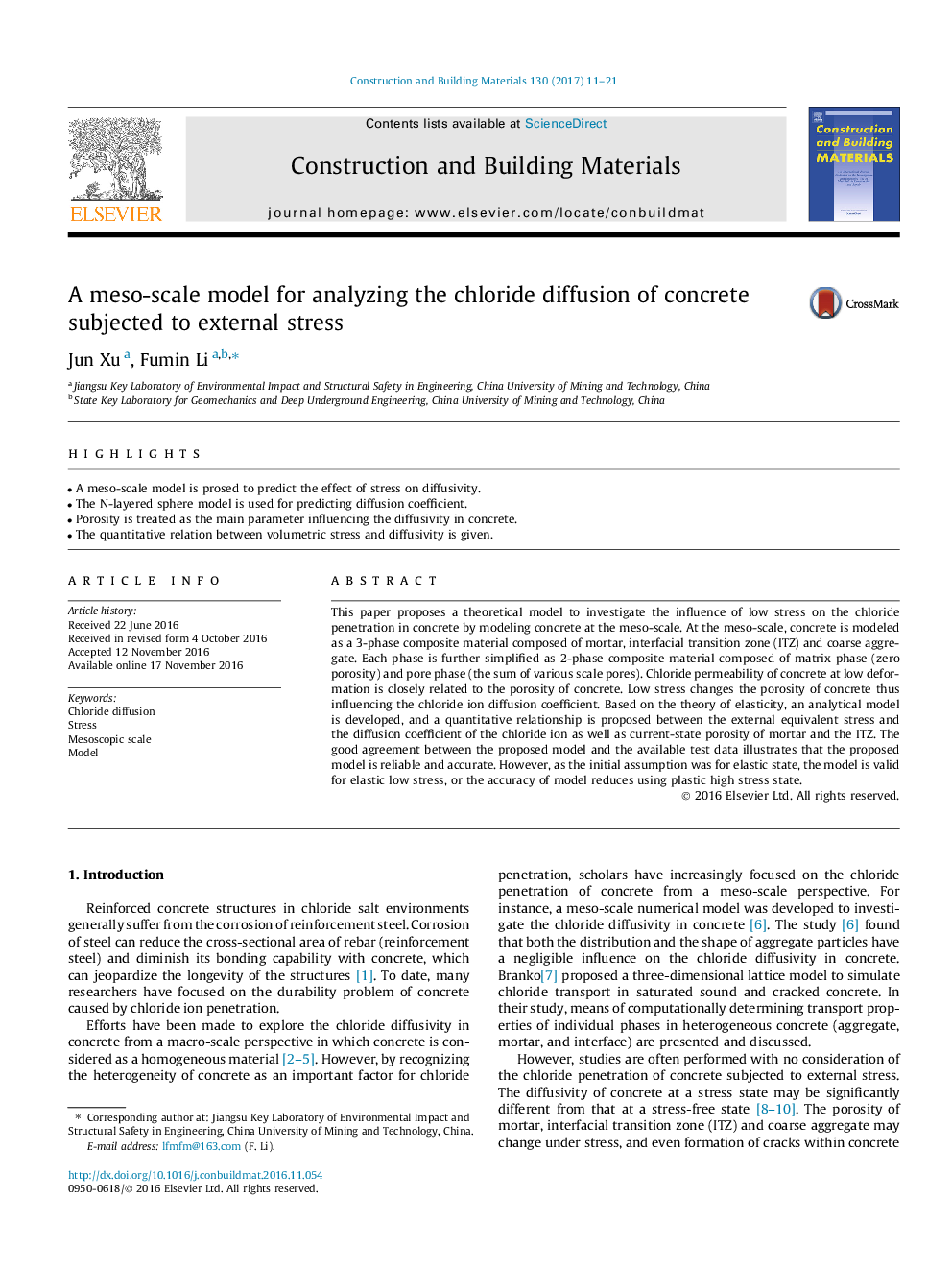| Article ID | Journal | Published Year | Pages | File Type |
|---|---|---|---|---|
| 4913864 | Construction and Building Materials | 2017 | 11 Pages |
Abstract
This paper proposes a theoretical model to investigate the influence of low stress on the chloride penetration in concrete by modeling concrete at the meso-scale. At the meso-scale, concrete is modeled as a 3-phase composite material composed of mortar, interfacial transition zone (ITZ) and coarse aggregate. Each phase is further simplified as 2-phase composite material composed of matrix phase (zero porosity) and pore phase (the sum of various scale pores). Chloride permeability of concrete at low deformation is closely related to the porosity of concrete. Low stress changes the porosity of concrete thus influencing the chloride ion diffusion coefficient. Based on the theory of elasticity, an analytical model is developed, and a quantitative relationship is proposed between the external equivalent stress and the diffusion coefficient of the chloride ion as well as current-state porosity of mortar and the ITZ. The good agreement between the proposed model and the available test data illustrates that the proposed model is reliable and accurate. However, as the initial assumption was for elastic state, the model is valid for elastic low stress, or the accuracy of model reduces using plastic high stress state.
Related Topics
Physical Sciences and Engineering
Engineering
Civil and Structural Engineering
Authors
Jun Xu, Fumin Li,
